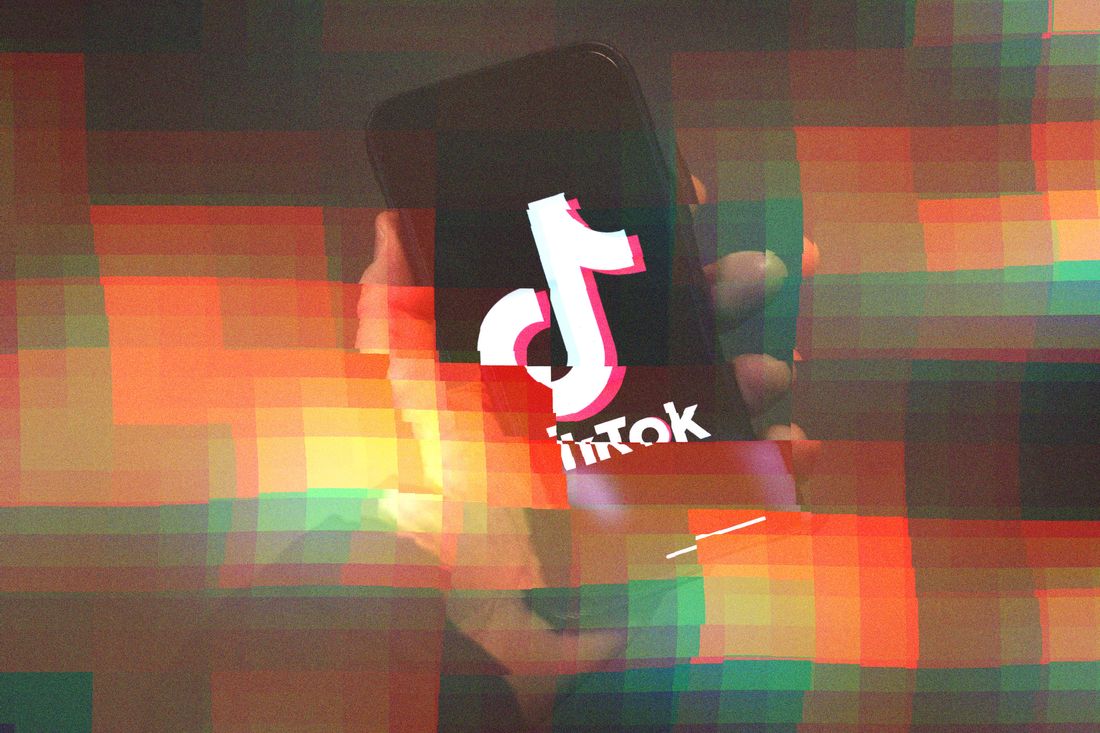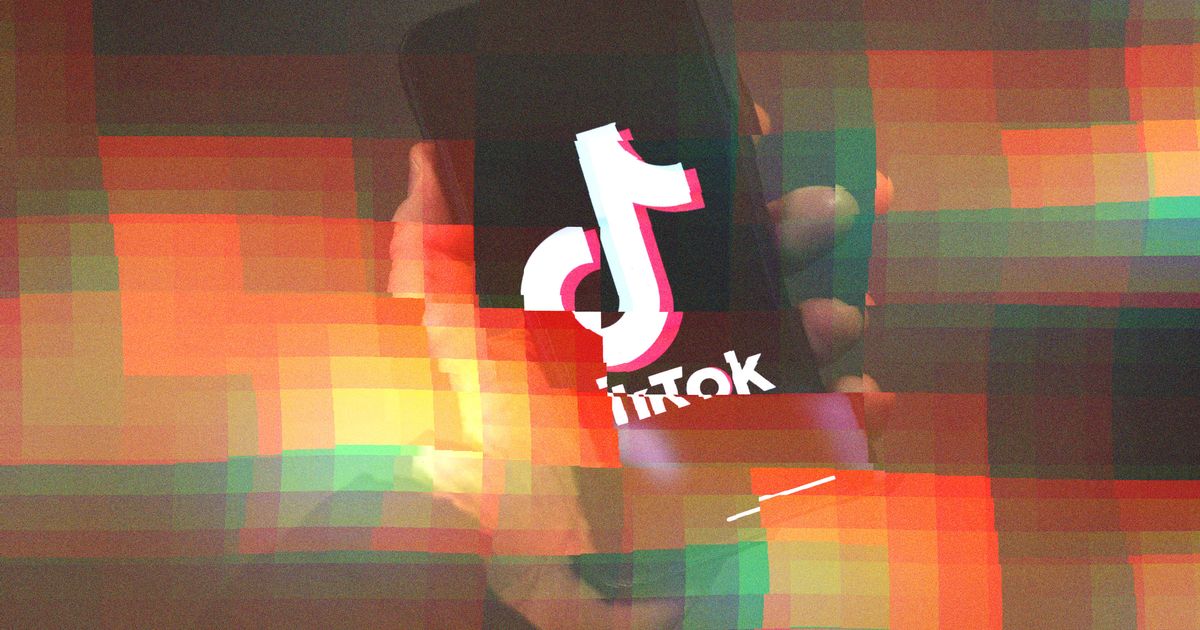
Photo-Illustration: Intelligencer; Photo: Getty Images
It’s been lost in the broader spectacle of the second Trump administration — and within users’ own still-refreshing feeds — but the story of the TikTok ban remains, so far, one of the more consequential stories of the year. The ban itself, which was passed into law during the Biden administration and upheld by the Supreme Court, represented a significant curtailment of speech rights in the name of national security. The ban’s delay, which took the form of a flurry of letters from the Justice Department promising various liable tech companies that it simply wouldn’t enforce the law, set a genuinely wild precedent, suggesting that the president can simply decide which federal laws are enforced and why.
The unpopular piece of legislation was propelled by incoherent moral panics and political opportunism and aided by political incompetence; recall that Donald Trump attempted to ban TikTok via executive order before becoming convinced that, actually, TikTok loved him — or at least that its investors were his friends — right after Democrats committed themselves to the ban. Now it’s been delayed three times, most recently in June, with a new sale or divestment deadline of September 17. Since then, conflicting news about TikTok’s fate has dribbled to the public. Vice-President J.D. Vance, who was asked to help broker a deal with American buyers, suggested in March that there’d be an arrangement ready by the then-deadline in April; he hasn’t publicly mentioned the deal since. Last month, the South China Morning Post reported that while ByteDance had “thanked US President Donald Trump” and was “still working with Vice-President JD Vance,” negotiations had been derailed by broader escalations in the U.S.–China trade war. On Monday, Trump signed an executive order further extending a trade “truce” while the two countries work out some sort of inclusive deal. Though TikTok had previously been central in these negotiations, Trump hasn’t mentioned it in months, and, at least according to a strangely sourced report in the New York Post, he’s “starting ‘not to give a crap’ if TikTok briefly goes dark,” frustrated with China’s resistance to allowing American companies — and the American government — to take control of the social network.
The outline of an eventual plan has emerged, however. In June, Bloomberg reported that a consortium of investors, led by Oracle and also including Blackstone and Andreessen Horowitz, was back after Trump’s tariff announcements derailed an April bid. According to the Information, TikTok’s new arrangement could include a separate app, known internally as “M2”:
Under the plan, TikTok users will eventually have to download the new app to be able to continue using the service, although the existing app will work until March of next year … A person familiar with the matter said the group of investors involved in the deal has been finalizing the legal and financial details with ByteDance in recent months, and the group expects it will be announced when the Chinese government approves the sale, though it’s not clear when that will happen.
A lot of coverage of this ban has focused, understandably, on hypocrisy, inconsistency, and narrative closure: Will TikTok finally be banned? Will there be a deal? How will this all be resolved? Based on these reports, the Trump administration’s pound-of-flesh dealings with other tech companies, and the willingness of tech leaders under less pressure than TikTok’s to anticipate and accommodate the president’s desires — observe Tim Cook’s trembling hands as he gifts the president literal gold — it would be prudent to, uh, expand our range of potential outcomes here.
The sale is (as far as we know) still being shepherded by Vance, who says he’s pursuing a deal that would be “protective of Americans’ data privacy and America’s national security,” and who earlier this year said Big Tech companies were “on notice” over censorship and AI models should be “free from ideological bias.” (Recycling old comments by his mentor and patron Peter Thiel, he has also suggested that AI is a “left-wing” technology, never mind the recent “woke AI” executive order.) The companies making the bid, which would leave ByteDance with a minority stake in TikTok, are led by three outspoken Trump supporters and MAGA donors: Oracle’s Larry Ellison, Blackstone’s Stephen Schwarzman, and Andreessen Horowitz’s named partners. Earlier this year, Meta settled a lawsuit with Trump over his bans from Facebook and Instagram with a sizable donation to his presidential library. Just last week, Meta settled an AI defamation lawsuit with pro-Trump influencer Robby Starbuck, who will now advise the company on its efforts to “mitigate ideological and political bias.” Elon Musk agreed to a settlement on behalf of Twitter’s previous ownership, too, and Google is widely anticipated to be up next.
Just outside the industry, Ellison’s son, David, became CEO of Paramount after it merged with David’s company, Skydance. Trump loomed over this process in suggestive ways too. The deal closed after Paramount signed its own presidential-library settlement over the editing of a 60 Minutes interview with Kamala Harris. Trump-appointed FCC head Brendan Carr conditioned the deal on the elimination of DEI programs at Paramount, and the company played along. What really happened with Stephen Colbert? Hard to say for sure, but rest easy knowing that Skydance believes it “has fully complied with all applicable laws, including our nation’s anti-bribery laws.”
The transfer of control of TikTok to a group of Trump-aligned American firms in the name of national security would be a more severe outcome than a settled presidential lawsuit or regulatory harassment, and beyond the natural alignment between owners and the government, it could leave the administration with unprecedented leverage over the new firm. Vance would have brokered the deal in part, of course. But there’s also a good chance that the new firm, at least as outlined in press reports so far, wouldn’t be fully compliant with the letter of the TikTok ban as written. Instead, it would merely be declared compliant by the Department of Justice, which could — as is the case with the agency’s deferrals of the ban — simply change its mind. A new TikTok owned by a syndicate of Trump allies probably wouldn’t need to be told what sorts of things the administration does or doesn’t want to see on one of the most popular social media apps in the world, of course. But they’ll be in charge of a powerful entity that the president could in some way see as his — and which he already believes helped him win the election.
There’s other recent context to consider, too. Musk spent billions of dollars to make X a more agreeable platform for his worldview and Trump’s; Mark Zuckerberg, for reasons of his own, overhauled Meta’s moderation systems after Trump’s reelection. We don’t yet know what sort of platform awaits users of neo-TikTok or M2, or even if the Chinese government will allow such an arrangement to exist. If it does, though, the new entity will have every reason — and perhaps a natural inclination — to be sensitive to the president’s desires and grievances. More to the point, it might not have the option to ignore them. The rationale for the TikTok ban, as articulated in Trump’s initial 2020 executive order, was that it would censor “politically sensitive” content and could be used “for disinformation campaigns” under the direction of ByteDance’s home government. (It’s also an article of faith in the MAGA movement that American tech companies already conspired with the Biden administration in a comparable way.) At this point, shouldn’t we expect the Trump administration to exercise its available powers to the fullest, and then some?

